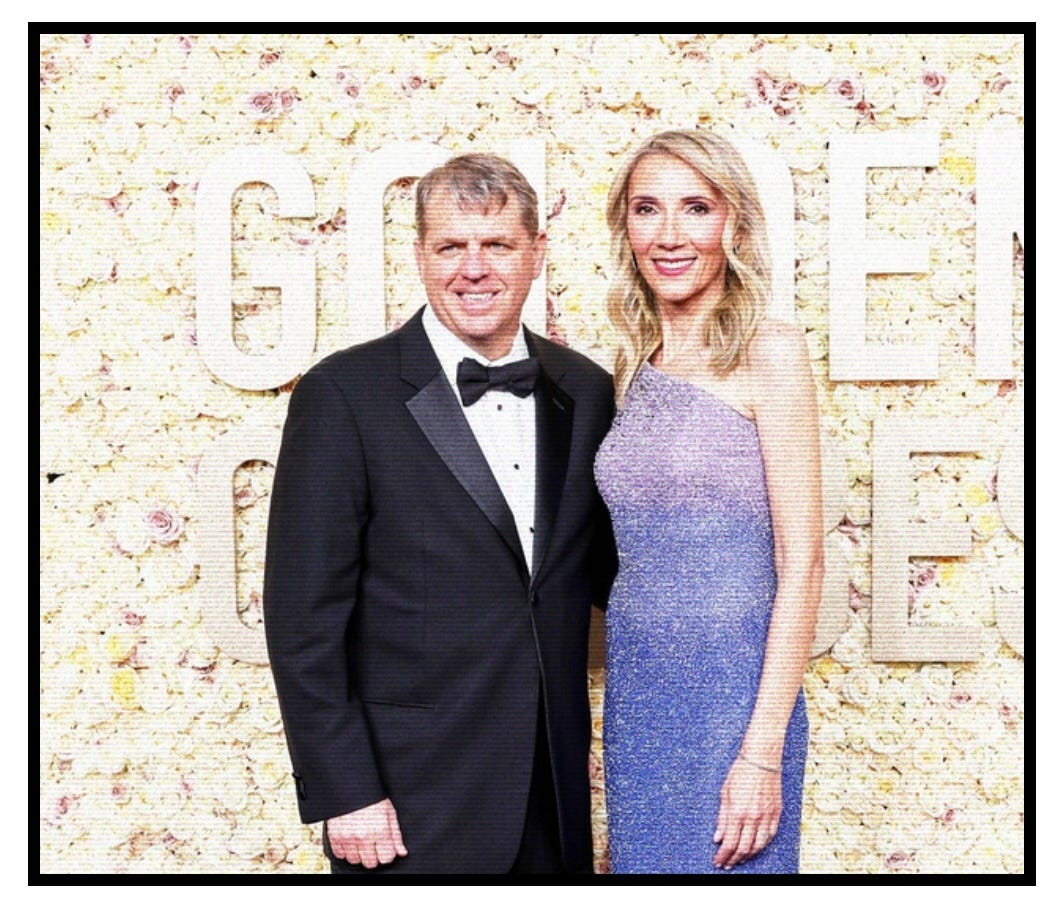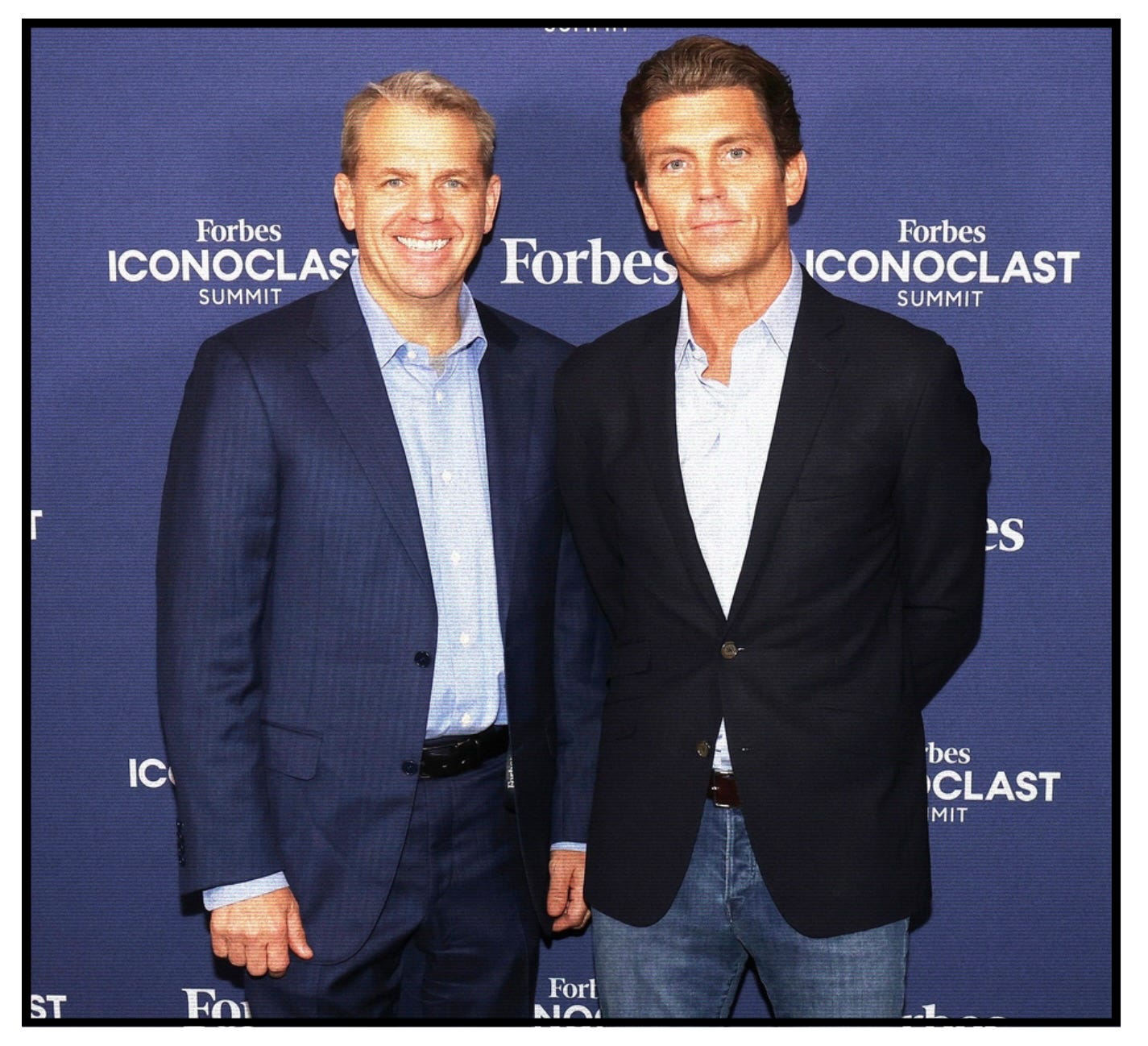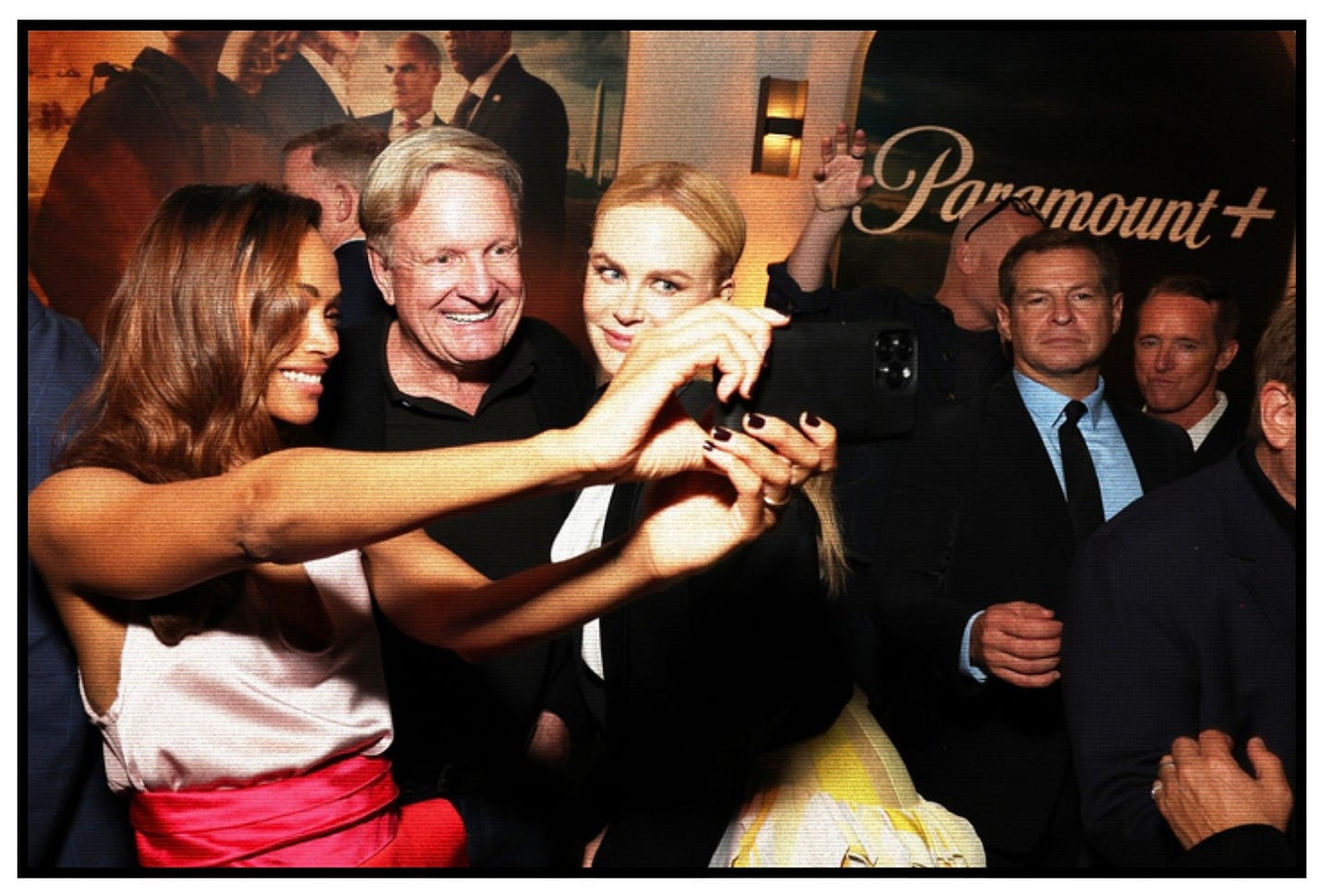SCOOP: Attorney General Reassessing Golden Globes Deal
I obtained HFPA members' full allegations of 'fraudulent behavior' as Todd Boehly moved to purchase the awards franchise

This is an important reminder to support independent media covering your industry. Become a paid subscriber to The Ankler today if you haven’t already.
Now, in today’s long-running installment of As the Globes Turn . . .
“We write as former members of the Hollywood Foreign Press Association (HFPA) to express our sincere concerns about the HFPA’s impending dissolution.” So begins the letter filed with the California Attorney General’s office in September by an anonymous group of members of the Hollywood Foreign Press Association, as reported here on Nov. 8, and whose details I can now share.
The letter, obtained by The Ankler, asks Attorney General Rob Bonta’s office to reconsider its approval of the group’s acquisition by the private equity firm Eldridge Industries, led by billionaire CEO Todd Boehly. The letter states: “New information has come to our attention that raises questions about the validity of the purchase.”
I’ve since confirmed that Bonta’s office is actively reviewing the allegations from the HFPA members. (The office did not respond to requests for official comment.) The Attorney General’s office has jurisdiction in this matter as it had to approve the deal initially due to Eldridge’s intention to eliminate the HFPA’s status as a nonprofit tax-exempt organization, allowing for the Globes (owned by the HFPA) to be converted into a for-profit entity, albeit one that would have a related non-profit arm to continue the HFPA’s philanthropic efforts.
The process of acquiring the awards and the accompanying requisite dissolution of the HPFA as its governing body began when the deal was announced in June 2023 — the Penske-owned trades, L.A. Times and the New York Times all incorrectly stated that the HFPA “is no more.” I have learned that the process still requires several more rounds of votes from the HFPA to be finalized, and that at this point, no money has yet changed hands for the acquisition.
If the AG’s office concludes that the conditions of the agreement were not met, it could withdraw its approval, leading to an unwinding of the deal, the latest in a long and troubled road for the awards show and its governing body.
Boehly declined comment for this story through a spokesperson.
Los Angeles litigator Neville Johnson filed the letter on behalf of the group of anonymous members. The 12-page missive asks that the Attorney General’s office “stay the pending dissolution of the HFPA to give us time to evaluate and pursue any and all legal rights that are implicated by this unfortunate series of events” and that “we believe numerous issues exist that invalidate the purchase agreement.”
Ten of the 12 pages are a “factual memorandum” outlining alleged deceit around the deal, including Boehly and HFPA President Helen Hoehne’s response to outreach from billionaire Ron Burkle and former Academy president Cheryl Boone Isaacs as competitive bidders. The document describes an atmosphere of distress amidst the 2021 publicist-led boycott of the group following a Los Angeles Times investigation that led to NBC pulling the show off the air in 2022.
The letter alleges that Boehly — who had been the HFPA’s partner as a full owner of Dick Clark Productions (DCP), the longtime producer of the Globes — stepped into the breach in the guise of the organization’s savior, taking on the rule of interim CEO, only to pressure members into a fire sale to his own company. The HFPA board reportedly approved Boehly’s acquisition offer in July 2022.
During the time that the Attorney General’s office evaluated the deal, Boehly and Jay Penske formed a joint venture named Penske Media Eldridge, a subsidiary of Penske Media, which acquired DCP from Boehly in Jan. 2023. Penske is now CEO of Dick Clark Productions. He is also the owner of trade publications Deadline, Variety and The Hollywood Reporter through Penske Media Corporation, in which Boehly is an investor. Penske Media did not respond to a request for comment.

Among the allegations of “fraudulent behavior” contained in the letter:
A conflict of interest on the part of Boehly, who served as interim CEO of the HFPA (having stepped in after the controversies began) while the organization was negotiating a sale to his own company — effectively alleging that he was sitting at both sides of the table — and steering the process.
A refusal to engage with Pacific Coast Entertainment (PCE), a group headed by former Academy President Cheryl Boone Isaacs and funded by investor Ron Burkle, as it attempted to make a competitive bid for the HFPA. The group allegedly felt “iced out” of the process and their offer was never heard, leaving Boehly as the only player at the table.
HFPA President Hoehne advised the members not to engage with Pacific Coast, which was persistent in submitting its offer for review. The letter alleges that she consistently rebuffed PCE. (Note: Boone Issacs publicly complained about a process she described as “not equitable” at the time.)
Even as HFPA leadership rebuffed the PCE offer, HFPA members were never actually able to read and review the Boehly offer. They were supposedly forced to approve it unseen, with those who objected being dismissed as “conspiracy theorists.”
In the aftermath of the approval, HFPA members became employees of the new company and were forced to sign a new nondisclosure agreement and contract — again, sight unseen. Those who refused to sign were dismissed without compensation.

The letter describes a complicated web of deceit that steamrolled the membership into accepting an acquisition offer from Boehly without an open and complete process.
According to the letter, none of the members, nor the board, were able to negotiate with, or even hear, any other offer other than Eldridge’s. Even Eldridge’s proposal was not made open to all of the board or the members prior to voting on the transaction. Hoehne and HFPA treasurer Henry Arnaud were only provided the first and last page of the purchase agreement when signing it. This was the most they were able to see of the agreement before its approval.
Reporting and announcements on the deal at the time did not disclose a sale price. HFPA members I have spoken with claim ignorance of the ultimate amount, asserting in the letter to the AG that many were prevented from reading the complete terms at the time of closing.
The CBS Factor

Further, I am told that the deal to broadcast the Golden Globes on CBS includes a clause that would allow the network to cancel the deal in the event of any new controversy. Were the terms of this deal to unravel, the current arrangement with CBS would certainly come under scrutiny. (Of course, David Ellison’s Skydance Media, which will own CBS after its deal to acquire Paramount Global is approved by regulators, could also have its own ideas about airing the awards show.)
CBS’ Golden Globes license deal in itself, however, is a sign of how fortunes have changed for the HFPA. At its height, NBC paid the HFPA a reported $60 million annual license fee to the HFPA and producers Dick Clark Productions. No numbers have been reported on the CBS-Globes deal, but one insider has told me the network paid only $3 million to air the 2024 show after a lack of bidders came forward. (CBS currently is planning on airing the Golden Globes on Jan. 5, 2025.)
At the time of the publicists’ boycott, the HFPA was governed by its 85 members. Today, approximately 55 members remain as employees of the Boehly- and Penske-owned joint venture. Those members are journalists writing for international publications, many of whom were dependent on the fees they earned from participating in the HFPA’s various committees overseeing the show and its charitable arms. Those members who remain with the company are now $70,000-a-year employees — an amount on which the livelihood of many depends — and the terror of losing that salary has prevented many from speaking out, or signing their names to the letter sent to the AG, according to HFPA members.
I have learned that in May of this year, 11 members were dismissed and terminated, losing their salaries, health insurance and voting rights. When brought together in a Zoom meeting where they were unexpectedly told of their firing, the only grounds they were given for why they had been selected was Hoehne’s explanation that “It’s a business decision.”
As a 501(c)(6) corporation, the HFPA has operated a series of charitable arms to which it disbursed a large share of its previous income. According to the Golden Globe Foundation, the nonprofit established by Boehly, since 1989 the HFPA donated $55 million to programs and scholarships for film schools, film-restoration funding, grants to international programs for the protection of journalists and a joint program with the NAACP to increase minority participation in the entertainment industry.
A proposal I have seen and was presented to the members by Boehly’s Eldridge company during the negotiation promised continued support for those groups at the level of funding they received under the 501(c)(6). Sources tell me that funding for the charitable works has been “severely reduced” under the Penske-Boehly joint venture. The document also implied a positive working relationship between the Golden Globes and the HFPA in Penske-owned trade publications The Hollywood Reporter, Variety and Deadline.
As I continue to report on all things Globes, if you have any knowledge or insights of anything related to this story, I’d love to hear from you. You can try me at richard@theankler.com or for privacy’s sake on Signal via this handy QR code. Look forward to chatting!
Can’t afford The Ankler right now? If you’re an assistant, student, or getting your foot in the door, and want help navigating the craziness of this business but don’t have the money to spare, drop me a line at richard@theankler.com and we’ll work it out. No mogul or mogul-to-be left behind here at The Ankler.




